Jewish Wedding Rituals
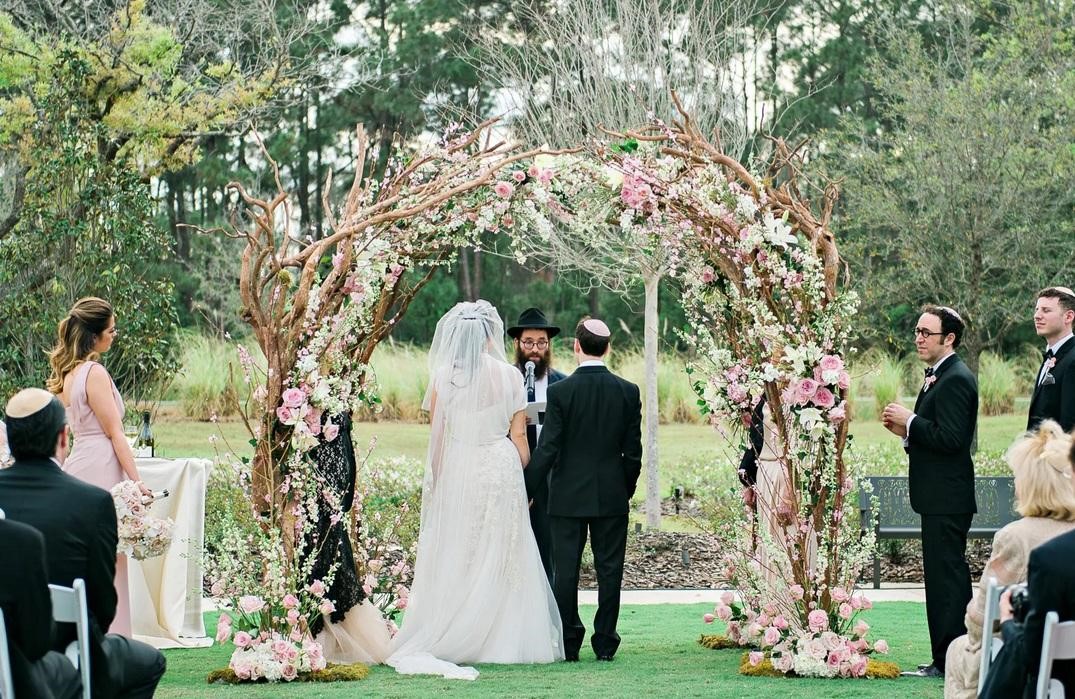
Jewish Wedding rituals have a different realm regarding age-old traditions and timeless rituals of various communities that mark their existence today. A distinct experience that we go through at least once in our lives is a wedding ceremony. Each religion stands to its authenticity of age-old customs and timeless rituals to celebrate the unison of love.
Jewish contribute 0.2% of the global population, yet Jewish people have managed to mark their identity in diverse businesses known for their religious, cultural, and political beliefs and have contributed to the intellectual and political and economic affairs of their respective societies. If you are unfamiliar with the wedding traditions of Judaism, here you go.
We will be exploring the essence of Jewish wedding rituals and understanding their tapestry of traditions guided by jingles of ancient traditional practices.
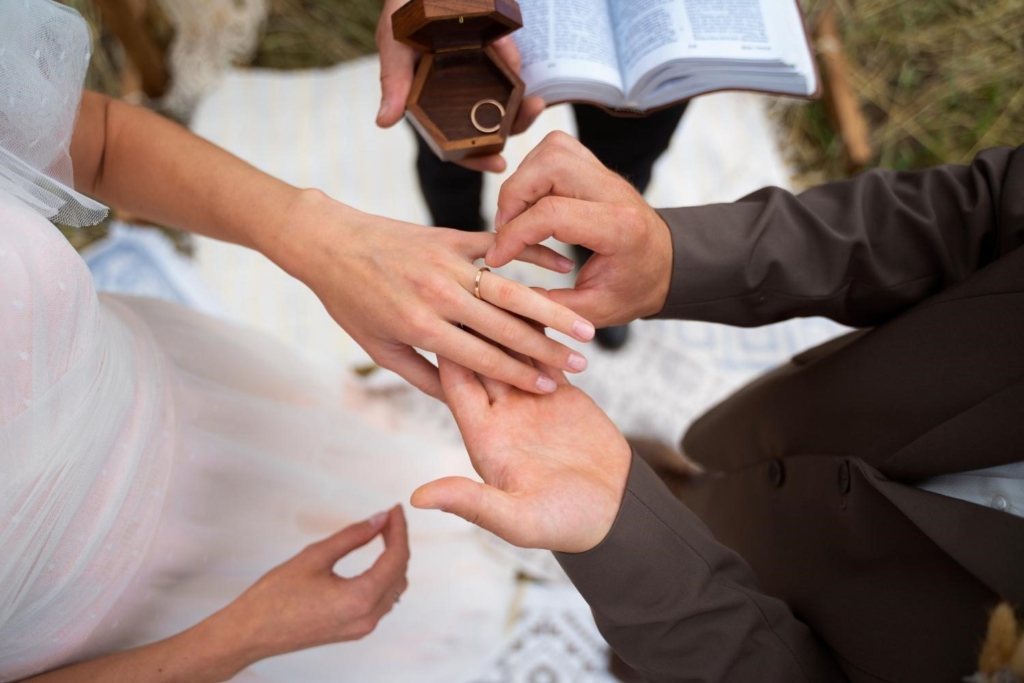
Pre-Wedding Rituals:
Separation

With the significance of family and the beloved ones, these wedding rituals happen weeks or days prior to the wedding ceremony. The couple is separated, before entering into the beautiful unison of marriage this ritual calls a family time.
Tena’im
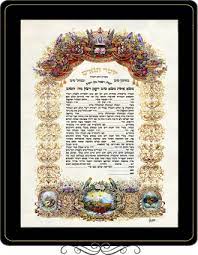
Tena’im is a formal document which contemplates the wedding conditions in depth, it carries the financial obligations and other. This agreement is signed by the parents of the respective bride and groom.
Also, Check this out: Indian Wedding Rituals
Henna Parties
Heena parties are ubiquitous in the wedding ceremonies. Henna has a very pious and playful practice in many communities. It is believed that prior to the wedding ceremony the bride enjoys henna parties with her female friends and family members.
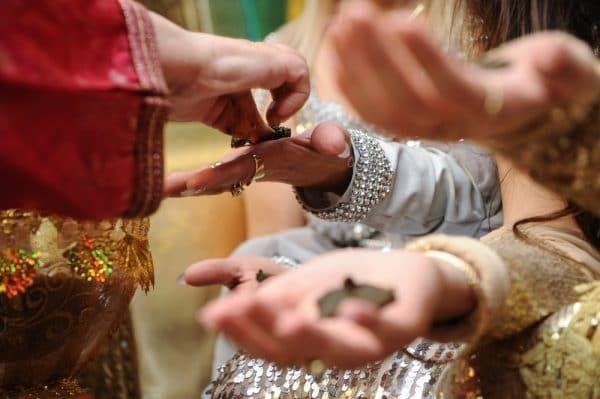
Aufruf
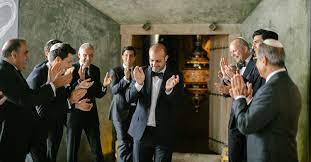
Aufruf or calling up the groom to Shabbat prior to the wedding. This ceremony includes showering the groom with blessings for his future marriage endeavours.
Mikveh

It is the ritual bathing ceremony that the couple undergo in order to purify themselves and embark to their new journey as a married couple. This ritual is highly symbolic and crucial.
Fasting
The couple observes fast before the wedding ceremony to purify themselves internally. It is believed that the couple begins with their fast from the dusk and breaks it with a glass of wine at the wedding ceremony.
Kabbalat Panim or the Betrothal ceremony
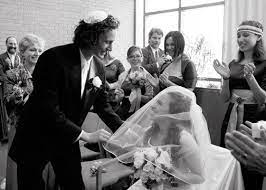
Betrothal ceremony translates to a formal engagement ceremony, this involves greetings and welcoming of the bride and groom. This ceremony is gender specific to the respective families called Tish (groom’s welcoming ceremony) and Bedeken (bride’s welcoming ceremony).
The groom participates in the ceremony where receives blessings and sagacity from the male kith and kins while the bride on the other hand is shrouded by the mother and mother-in-law of the bride. Bedeken and the veiling of the bride symbolises the commitment and dedication of the groom to the bride and their marriage regardless of the appearance.
Check this also Sindhi Wedding Rituals
Wedding Rituals:
Ketubah or the signing of the marriage contract
Yes, this divine ritual includes signing of the contract, marriage contract or Ketubah by the groom in presence of his two other male witnesses who sign it up after the groom’s signature. Ketubah usually speaks of the bride’s rights and groom’s obligations in depth.
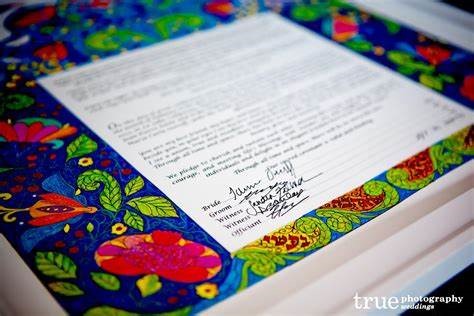
This traditional document is conventionally written in Aramaic language, though the non-orthodox couples today use the bilingual version of the document.
Ketubah holds back certain progressive ideas and carries the gist of mutual support and love for each other.
Check this also Marwari wedding Rituals
Chuppah or the wedding canopy
Chuppah or the wedding canopy stands the centrepiece of the ceremony. Chuppah signifies the new home that the couple is going to build with the warmth of their love and giving attitude towards each other in the presence of God.
Commonly, the canopy is of four pillars, no walls and a cloth. Having no walls is about welcoming the kiths and kins to the family.
This practice is extremely pious and symbolises unity and strength in cohesion.
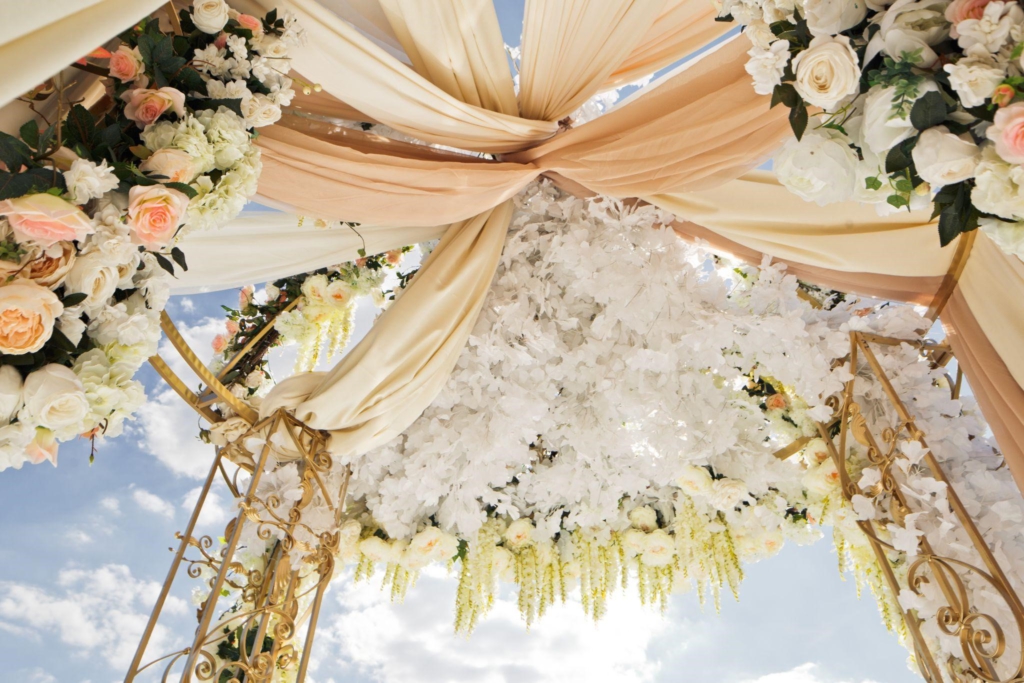
One common practice while the couple vows and promises under the canopy is the walk to the Chuppah. Traditionally, the brides were escorted by the mother and mother-in-law to the canopy while the groom by the father and father-in-law, though this differs some consider their respective parents escorting them to the canopy while any happy couple can comfort with the same.
Also in Ashkenazi communities it is believed to hold a candle while the couple is escorted to the canopy.
Check this also Muslim/Islamic Wedding Rituals
Circling
This traditional practice is usually not followed by Sephardic (jews from Spain, Portugal or North Africa) communities. This ritual includes the bride circling the groom three or seven times based on their traditional belief. Three circles indicates: Righteousness, Love and Kindness, and Justice derived from Hosea 2:21 and 22
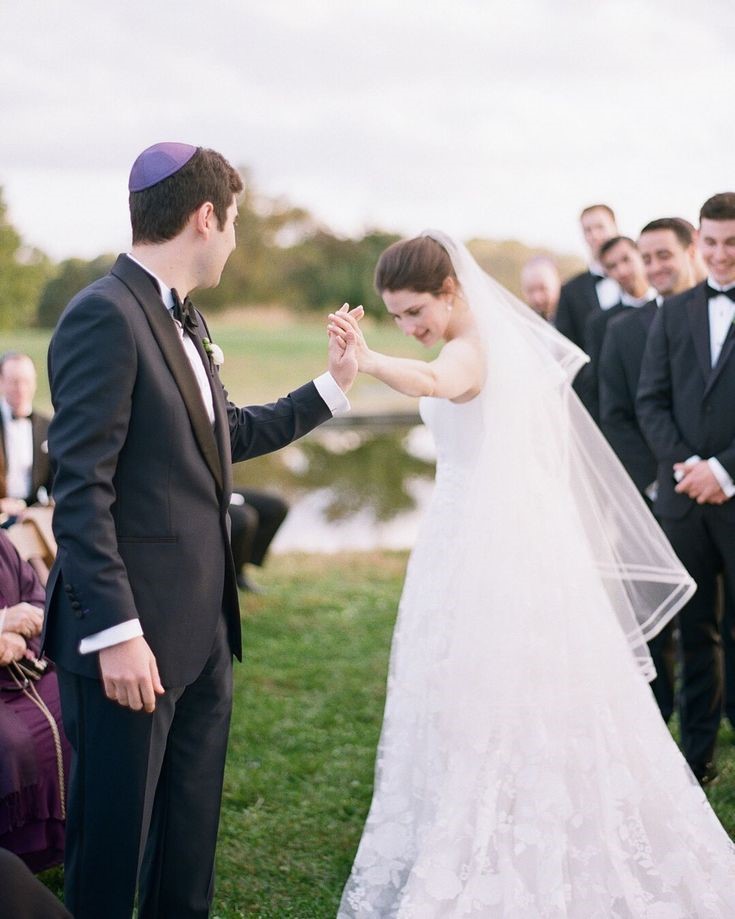
While the seven circles embrace the biblical concept that denotes perfection and completeness.
Although in certain liberal jewish families this tradition in order to mark a reform is pretty different, especially in the case of a homosexual marriage three circles are taken by the bride around the groom and vice versa, wherein one circle is taken by both of them together.
Check this also Marathi Wedding Rituals
Erusin or the Betrothal
Betrothal or Erusin or the ring ceremony, the initiation of this ceremony begins with the traditional customs of blessing over a glass of wine wherein the parents bless the bride and groom through the wine and later is tasted by the couple.
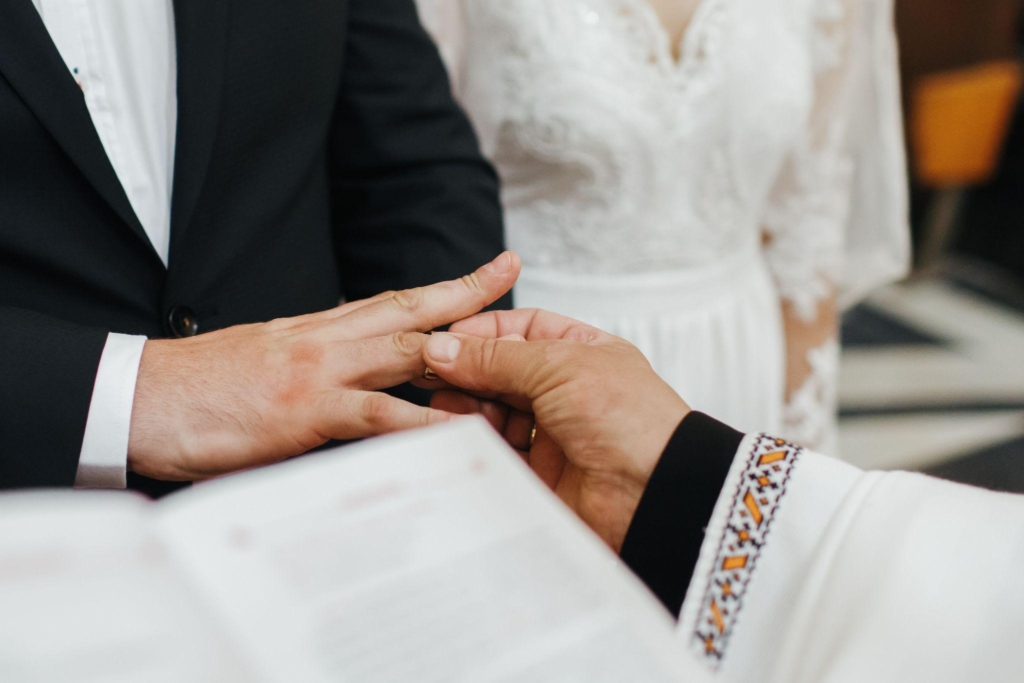
Erusin concludes with the ring ceremony. In Sephardic community you can present a ring, a coin or anything expensive it may or may not be necessarily a ring. It is believed that exchanging expensive gifts sanctifies the wedding.
However the ring that is gifted is traditionally expected to be just a band without embellishments or stone made up of solid metals like gold and silver.
The ring is then placed in the right index finger with a traditional belief that it connects to the heart, in addition to these rings are a declaration that quotes, “Behold, you are consecrated to me with this ring, in accordance with the laws of Moses and Israel.”
Check this also Tamil Wedding Rituals
Post-Jewish Wedding Rituals:
Sheva Brachot, or the seven blessings
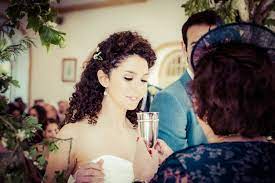
Sheva Brachot are the seven blessings that are read out loud by the rabbi or hazzan or by any of the close members of the family or friend. These vows originate from the ancient Jewish texts that mark the beginning of a happy marriage.
Blessings are given over a cup of wine which is then offered to the couple. Sheva Brachot represents the interconnectedness of the land of Israel, humanity and nature.
Sheva Brachot is more than just a ritual; it is a pious and sacred consolidation of love that binds to God and the family and most importantly the couple.
Check this also Telugu Wedding Rituals
Breaking the Glass
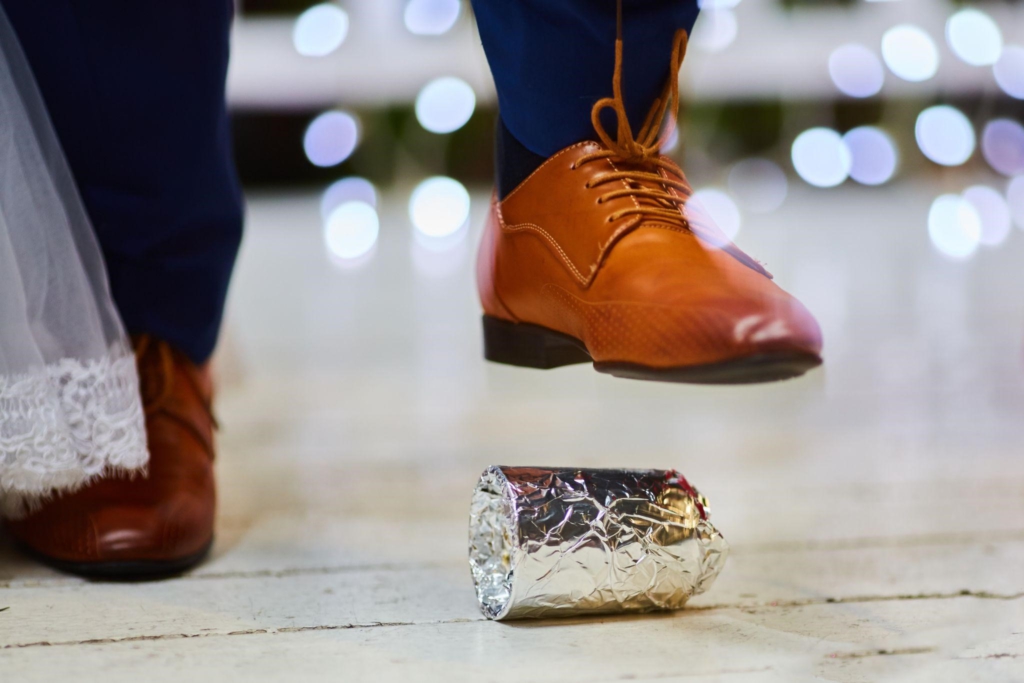
Breaking the glass is a popular tradition while the wedding ceremony concludes. However, it differs from community to community. Anciently, the glass was broken by the groom with their right foot yet some of the brides too participate now in this ceremony and everyone chants Mazel Tov, which translates to congratulations to the couple.
Breaking of the glass has different symbolic meanings one of which is the demolition of a temple in Jerusalem or the fragility of life.
Breaking the glass thus symbolises remembrance and hope.
Check this also Punjabi Wedding Rituals
The after-wedding ceremony rituals are too quite interesting to know;
Yichud or Togetherness

Yichud is a post-wedding ritual where couples visit a private room, Yichud and spend some time together celebrating their very first time as a married couple and embracing the moments.
This ritual is all about togetherness and love. This tradition is majorly practised by the Ashkenazi Jews.
Check this also Gujrati Wedding Rituals
Seudat Mitzvah or the wedding feast
The wedding feast is the final celebration of love with joy, the kith and kins dance in joy, and celebrate the wedding of the couple with Hora, a traditional Jewish dance.
Wedding rituals are considered highly sacred and serious events, thus the wedding feast is organised where the people who warm the event with their presence enjoy themselves.
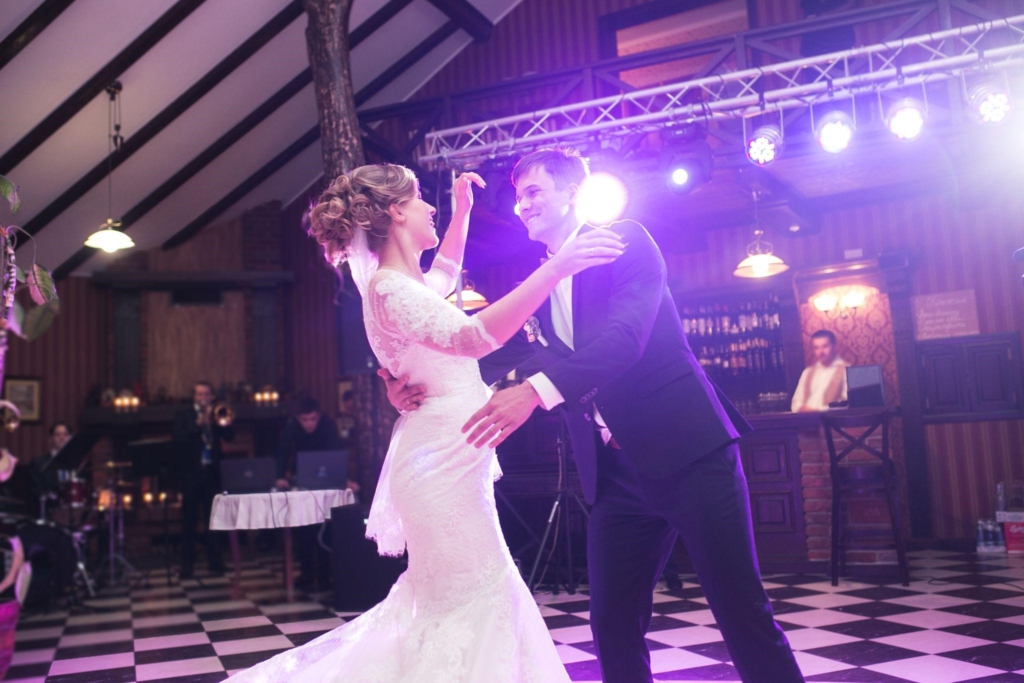
Traditional Kaleidoscope: Attire and Customs
Traditional attires are the symbol of love and religious values, Jewish weddings too have specially designed attires pre-decided for the bride and groom.
The bride wears a typical white dress which symbolises new beginnings and purity while the groom wears a black tuxedo with a white shirt and tie that epitomises purity and commitment.
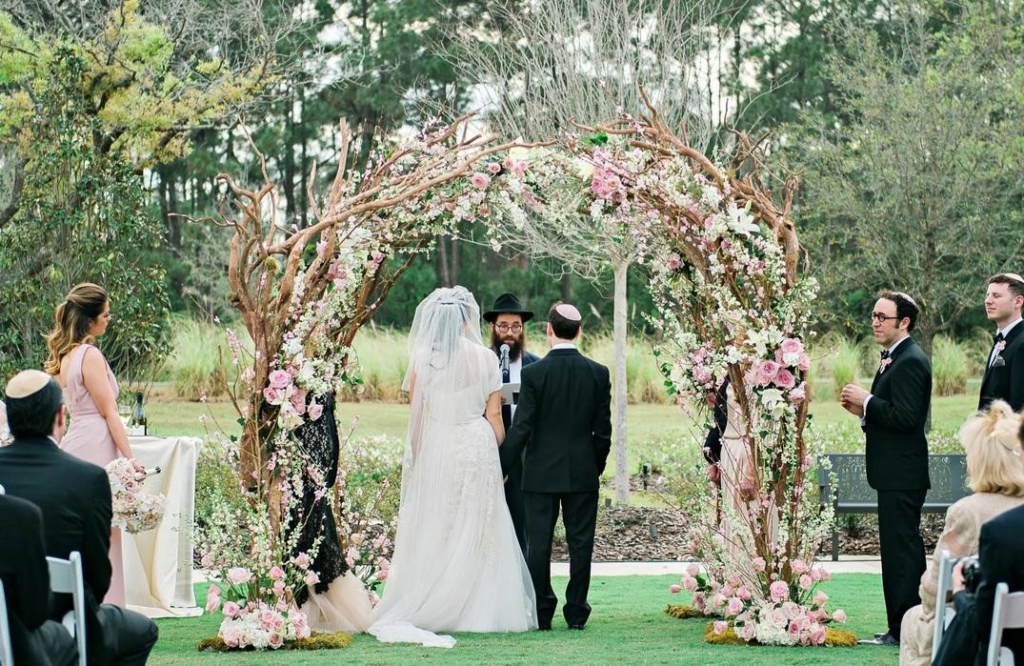
Whilst we are talking about the traditional wedding, and tapestry of traditions how can we forget the traditional Jewish delicacies and cuisine?
Traditional Jewish cuisine includes Chicken Soup and kosher Meat Dishes which typically include chicken, lamb or brisket. Kugel, Challah which is braided egg bread represents celebration and abundance at a wedding.
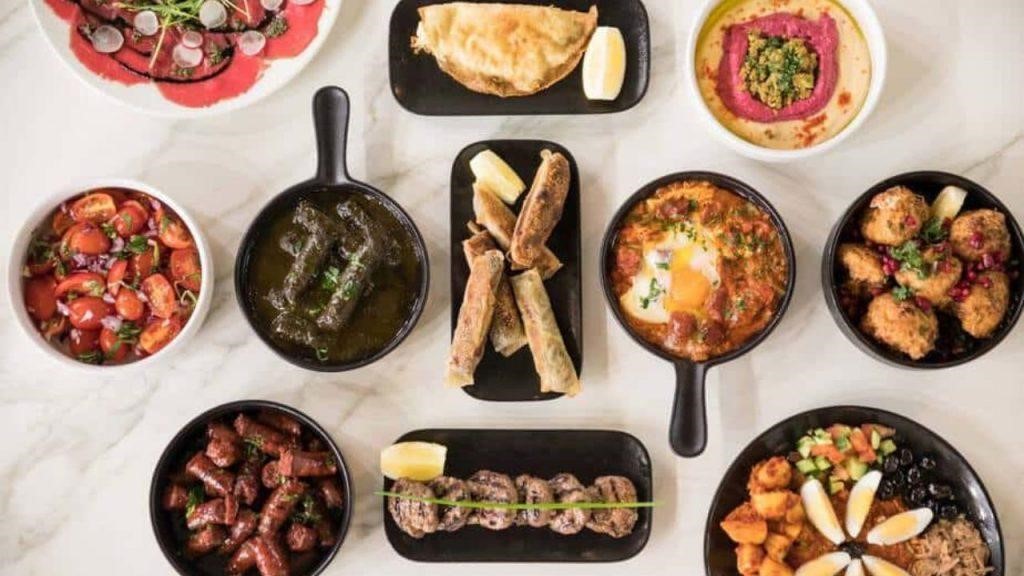
The dessert includes Rugelach and Babak with other traditional siders.
Check this also Sikh Wedding Rituals
Conclusion:
Weddings are always special, and each community with its essences truly enhances the meaning of it, the whole concept of a wedding is the celebration of unison and love. Jewish weddings are one such beautiful example of this celebration where every ritual marks its own existence and caters to love, warmth and timeless traditions.
Right from the Bedeken ceremony where the bride is veiled just to symbolise acceptance irrespective of the bride’s appearance to Ketubah where the rights and responsibilities are pre-defined for a seamless marriage or the Chuppah where the couple vow to stand by each other and show mutual respect in the presence of God or the Circling marking honestly, love, kindness and righteousness or the seven blessing. Each event is distinct on its own and reflects a profound message to the society and community and most importantly the couple.
Truly the richness of the tapestry of Jewish tradition is timeless and thus is transcending over the years.
Check this also The Manipuri Wedding Rituals



